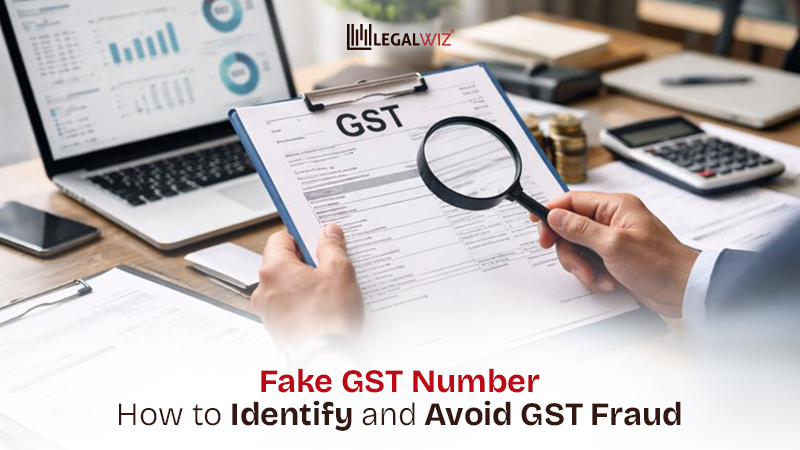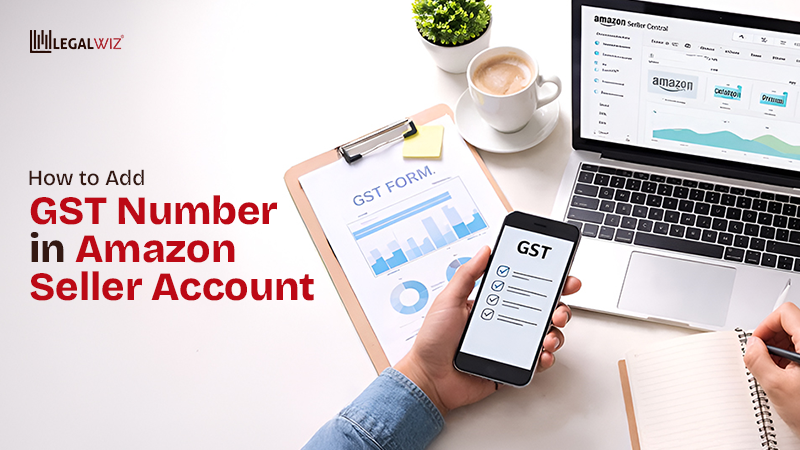ITR Filing Fundamentals for AY 2025–26: Everything You Need to Know
Let’s face it—“tax filing” sounds like something only grown-ups in suits worry about. But whether you’re a salaried employee, a freelancer juggling gigs, a small business owner, an NRI with ties to India, or a retired pensioner enjoying your chai, filing your Income Tax Return (ITR) matters.
Yes, even if your income is technically “exempt.”
Why? Because ITR filing is more than just a boring legal task—it’s your ticket to refunds, smooth visa applications, and staying on the taxman’s good side. Plus, it’s proof that you’re financially responsible. (Banks love that.)
Now, a quick jargon bust: When we say filing ITR for AY 2025–26, we’re talking about the Assessment Year, which is when the government checks your income and taxes for the Financial Year 2024–25 (that’s the year you actually earned the money).
This guide is your trusty co-pilot. It’s built for newbies, not tax nerds. You’ll learn exactly what you need, minus the mumbo jumbo.
And hey, filing your ITR? Not as scary as it sounds. Especially when you’ve got us breaking it down step by step, let’s roll.
1. What is ITR Filing and Why Should You Care?
Let’s start with the basics:
ITR stands for Income Tax Return. It’s a form you file with the Income Tax Department of India, where you tell them three simple things:
- How much money you made (your income)
- Where your money went (your expenses and deductions)
- How much tax you already paid—or still need to
Think of it as your financial report card. Just like your school wants to see how you performed each year, the tax department wants to see how your money performed. And unlike school, this report card can get you rewards, like a tax refund!
But Wait—Is ITR Only for Taxpayers?
Spoiler: Not at all.
Even if your income is below the taxable limit and you don’t have to file your ITR, you still should in many cases.
Filing your ITR is like raising your hand and saying, “Hey, I’m earning – and I’m legit!”
It shows the world (and the government) that you exist financially. This tiny piece of paperwork can help you get a home loan, a credit card, or even a visa someday.
So nope, it’s not just about “rules.”
It’s about being smart, future-ready, and confident—and yes, you can file Income Tax Return online.
Now that you know what ITR is and who needs to file, let’s see why filing one is a total power move—even if you don’t owe a single rupee in tax.
1.1 Filing ITR Return: More Than Just a Boring Rule
- Legal Requirement: If your total income exceeds the basic exemption threshold, it’s necessary to file ITR. If you don’t? Know that there are consequences of non-filing of income tax returns under Section 234F.
- Loan & Credit Card Approvals: When you apply for a home loan, personal loan, or credit card, banks usually want your ITR filings for the last 2–3 years.
- Visa Applications: Are you travelling abroad? Most embassies will ask for ITR receipts to verify your credibility before granting a visa.
- Claiming Refunds: If you have had extra TDS (Tax Deducted at Source) deducted, you need to file an ITR to get this money back.
- Proof of Income: Whether you are a freelancer, a business, or a salaried employee, your ITR is official proof of income.
Fun Fact: You can be penalized for not filing ITR—even if your tax payable is zero!
So don’t wait—file your ITR right NOW and take ownership of your financial story.
2. Who Needs To File a Tax Return? Spoiler: More People Than You Think
Now that we know what an ITR is, the next big question is: “Do I need to file one?”
Well, in most cases, yes. If you’re earning money, the tax department wants a peek. But here’s the fun part: the definition of a “taxpayer” in India isn’t limited to folks in offices wearing ties.
Let’s walk through it:
2.1 First, Who is Considered a Taxpayer in India?
In plain English, if you’re an Indian citizen, live in India, or earn money from India (even if you’re chilling abroad), the tax department likely considers you a taxpayer.
This includes solo earners, joint families (like HUFs), startups, big companies, NRIs, and even NGOs.
Basically, if there’s income, there’s ITR.
Let’s meet the whole cast who needs to file.
2.1.1 Individuals
This is the most common category. If you earn money in any of these ways, you’re part of the taxpayer tribe:
- Salaried employees – Your monthly paycheck is taxed at source (TDS), but you still need to file your return to claim refunds or show proof of income.
- Freelancers, consultants & gig workers – Work from home? Run a YouTube channel? Take up freelance projects? Congrats, you’re self-employed—and yes, the taxman’s watching!
- Small business owners & shopkeepers – From kirana stores to Instagram-based candle brands, business income (even small-scale) makes you a taxpayer.
- Pensioners – Retirement income, especially from pensions, is still considered taxable in many cases. So, yes, you need to file.
- Senior citizens (60–79) & super senior citizens (80+) – You get higher income exemption limits, but you still have to file if you cross that threshold.
2.1.2 Hindu Undivided Families (HUFs)
If your family earns income jointly—like rent from ancestral property or returns from inherited investments—it qualifies as a Hindu Undivided Family (HUF) under tax law.
Even if one person manages the money, the HUF is treated as a separate taxpayer, with its own PAN and its own ITR.
Think of it as your family’s collective income having its own tax file, just like a mini business with shared ownership.
2.1.3 Companies & Firms
This one’s straightforward:
ALL companies and firms—whether private or public, big or small, profit-making or not—must file an ITR every year.
This includes:
- Private Limited Companies
- Limited Liability Partnership
- One Person Company
- Partnership Firms
- Public Limited Companies
Even if the company didn’t make a single rupee this year? Still has to file. It’s not optional.
2.1.4 Non-Resident Indians (NRIs)
Just because you live abroad doesn’t mean your income in India is off the radar.
If you’re an NRI and you:
- Earn rental income from a property in India
- Receive interest from Indian bank accounts or FDs
- Have capital gains from selling shares or property
- Get dividends from Indian companies
…you need to file an ITR in India, even if you’ve never set foot here this year.
2.1.5 Trusts, Societies & Associations
It’s not just individuals and businesses; even non-profits need to file returns.
This includes:
- Charitable or religious trusts
- NGOs
- Resident Welfare Associations, clubs, and co-operative societies
Filing ensures transparency and is mandatory if they’re claiming tax exemptions or handling donations.
So now you know—whether you’re running a solo gig, retired and relaxed, sitting in Silicon Valley, or part of a family-owned property, chances are you fall into at least one of these buckets.
Okay, we’ve got the “who” covered. Now let’s tackle the “when”—and that depends on your income and the magic number called the exemption limit.
2.2 Under the Exemption Limit? ITR Rules Still Apply!
Just because your income is under the taxable limit doesn’t always mean you get to skip filing your ITR. There are rules—and exceptions to those rules—that make ITR filing mandatory in many cases.
Here’s the lowdown:
2.2.1 When Your Income Crosses the Basic Exemption Limit
Let’s talk about the “exemption limit”—this is the amount of income you can earn without paying any tax. It’s the government’s way of giving you a little breathing space.
But here’s the catch: if your total income (before claiming deductions like 80C, 80D, etc.) goes even ₹1 above this limit, you must finish your Income Tax Return filing. No excuses.
And here’s where age and tax regime come into play.
India has two tax regimes:
- Old Regime – lets you claim deductions and exemptions (like HRA, 80C, 80D)
- New Regime – lower tax rates but minimal deductions
Your exemption limit depends on which regime you choose and how old you are.
Basic Exemption Limits Based on Age & Tax Regime
| Category | Old Regime | New Regime |
| Individuals below 60 years | ₹2.5 lakh | ₹3 lakh |
| Senior Citizens (60–79 years) | ₹3 lakh | ₹3 lakh |
| Super Senior Citizens (80+) | ₹5 lakh | ₹3 lakh |
So, for example:
→ A 45-year-old earning ₹3.2 lakh under the Old Regime must file.
→ An 82-year-old earning ₹4.5 lakh under the Old Regime? No filing required.
→ But that same 82-year-old under the New Regime? Must file—because their limit is only ₹3 lakh there.
Bottom line:
If your income crosses the exemption limit based on your age and tax regime, it’s not optional—you’re required to file.
And that’s just the start. Even if your income is below these limits, you may still need to file in certain cases. Let’s look at those next.
2.2.2 Even If You’re Below the Limit, You Still Have to File If…
Even if you earn less than the exemption limit, you must file an ITR if any of the following applies to you:
- You want a tax refund (Yes, the only way to get your extra TDS money back is by filing.)
- You have foreign income or foreign assets (That includes bank accounts, stocks, property, or crypto held abroad).
- You’re an NRI with income from India (Like rent, dividends, or capital gains).
- You deposited over ₹1 crore in a bank account in one financial year
- You spent more than ₹2 lakh on foreign travel in a year (That fancy Europe trip? Yep, it’s on the radar.)
- You spent over ₹1 lakh on electricity during the year
- You have business or professional income, even under simplified tax schemes like 44AD or 44ADA
Bottom line? Even if you think you’re under the radar, the system has its checkpoints. So don’t assume you’re off the hook just because you’re “exempt.”
3. How Many Income Tax Slabs in India? Know Where Your Income Falls
Before filing an income tax return, you need to know where your money came from—because the tax department doesn’t just want the total; they want the source too.
In tax terms, these are called “income heads”—five neat buckets that every rupee you earn falls into. Let’s unpack them one by one:
3.1 Salary Income
This one’s easy. If you get a paycheck from an employer, that’s salary income. It includes basic salary, allowances (like HRA), bonuses, and even pension (in some cases).
Got a Form 16 from your employer? That’s your salary snapshot.
3.2 Income from House Property
Whether you’re earning rent from a second flat or just living in your own home, this one’s for you.
- Rented house? That rent is taxable.
- Self-occupied house? You can still claim deductions on home loan interest.
3.3 Capital Gains
Sold shares, mutual funds, gold, or real estate? The profit (or gain) is called a capital gain.
These are further split into:
- Short-term (sold quickly)
- Long-term (held for a longer period)
Even gains from crypto are taxed under capital gains now.
3.4 Business or Profession
This covers everyone from freelancers and consultants to small shop owners and side-hustlers. If you work for yourself or run a business, your income goes here.
Selling art online or offering coaching? Yep, this applies to you.
3.5 Income from Other Sources
This is the “everything else” bucket:
- Savings account interest
- Fixed deposit interest
- Dividends
- Winnings from game shows or lotteries
- Gifts (above a certain limit)
Pro Tip: Report everything—even income that’s not taxable. It shows honesty, builds a clean record, and keeps you out of trouble if you ever get a notice.
We have cleared what counts as income and where to put it—let’s talk about when you need to file. Because yes, there are deadlines… and missing them could cost you.
4. Mark Your Calendar: Income Tax Return Due Date for AY 2025–26
Taxes may not wait for anyone, but thankfully, they do come with deadlines. And if you want to avoid penalties, late fees, or unnecessary drama, mark these dates now (yes, like right now).
Here’s your ITR calendar for Assessment Year 2025–26 (that’s for income earned in FY 2024–25):
| Due Date | Who It’s For | What It’s For |
| July 31, 2025 to 15th September, 2025 | Most individuals, salaried employees, freelancers, and small businesses | Regular ITR filing (no audit cases) |
| October 31, 2025 | Businesses/professionals requiring an audit | Filing ITR after audit; audit report must be filed by Sep 30 |
| November 30, 2025 | Transfer pricing cases | ITR filing for international/domestic related-party transactions |
| December 31, 2025 | Everyone who missed the original deadlines | Last date to file a belated or revised return |
4.1 Why You Shouldn’t Wait Till the Last Minute
The ITR deadline may look miles away… until it’s not. One minute you’re bingeing Netflix, and the next you’re staring at a slow portal, missing documents, and a ticking clock at 11:59 PM.
Here’s what last-minute filing really gets you:
- Up to ₹5,000 penalty—just for being late
- Interest on any unpaid tax
- Delayed refunds (if you’re eligible)
- Missed deductions and benefits
- Higher chance of errors or even a dreaded notice
Long story short? Procrastination isn’t worth the paperwork.
Do Future You a favour—file your ITR, stress less, and maybe even get your refund faster.
Before you jump into the portal, you’ll need a few things by your side. Let’s go over the essential documents you should have ready to make filing a breeze.
Let’s build your ITR checklist!
5. Prep Like a Pro: Which Documents are Required For ITR Filing In 2025?
Alright, you’ve marked your Income Tax Return due date for 2025. But before you dive into the ITR portal, let’s make sure you’ve got your paperwork power pack ready.
Here’s your go-to checklist:
- PAN & Aadhaar: Your identity superheroes. Both are mandatory to file your return.
- Bank Account Details: Especially the one where you want your refund credited (if any).
- Form 16 (if you’re salaried): Given by your employer, it shows how much you earned and how much TDS they’ve already deducted.
- Form 26AS + AIS/TIS: Download these from the income tax portal. They show income, TDS, high-value transactions, interest, and more. Basically, it’s what the tax department already knows about you. Cross-check to avoid surprises.
- Interest Certificates: From savings accounts, fixed deposits, or NBFCs. Even if no TDS was cut, you still need to declare it.
- Capital Gains Statement (if you sold shares, mutual funds, property, or crypto): Helps you calculate short-term and long-term capital gains tax correctly.
- Rent Receipts / Home Loan Interest Certificates: Needed if you’re claiming HRA or deductions under Section 24(b).
- Investment Proofs & Deduction Documents: Includes evidence for deductions under:
- Section 80C: LIC, EPF, ELSS, tuition fees, PPF, etc.
- Section 80D: Health insurance premium
- And other sections like 80E (education loan), 80G (donations), etc.
Pro tip: Don’t wait till the night before to scramble for paperwork. Some docs—like capital gains reports or AIS corrections—take time.
Still confused about what to gather? Check out this detailed guide on documents required for ITR filing to be 100% ready.
Now that your paperwork’s sorted, let’s talk strategy.
Old Tax Regime or New? This one decision can make or break your tax savings—so let’s break it down next.
6. Types of Tax Regime in India: Old vs New — What’s the Deal?
Before you start filling out your return, you’ve got to make a big money decision. Which tax regime should you choose?
India offers you two paths:
- Old Regime – the classic one with deductions and exemptions
- New Regime – fewer deductions, but lower tax rates
Let’s keep it simple.
6.1 Old Tax Regime
This one’s loaded with deductions and exemptions. You can claim:
- HRA (House Rent Allowance)
- 80C (LIC, PF, ELSS, tuition fees, etc.)
- 80D (Health insurance)
- 80E (Education loan interest), 80G (Donations), and more
Best for: People who invest or spend smartly on things that qualify for tax breaks.
6.2 New Tax Regime
Introduced to simplify taxes, this regime offers lower tax slabs, but with a catch—most deductions are gone.
You get a few benefits like:
- ₹50,000 standard deduction (from FY 2023–24 onward)
- Reduced tax rates across slabs
Best for: People with fewer deductions or those who want a no-fuss approach.
6.3 So, Which One’s Better?
That depends on your income mix and investments.
If you’re someone who claims a bunch of deductions, the Old Regime might save you more.
If not, the New Regime could offer lower taxes with less paperwork.
Good news? You can switch regimes every year (except for business income cases under certain rules).
So don’t stress—just compare both and choose what works this year.
Now, the regime is out of the way, let’s talk forms—because yes, there’s more than one ITR form for AY 2025–26, and choosing the right one is half the battle. Time to unpack them next.
7. From ITR-1 to ITR-7: Types of Income Tax Return Forms You Should Know
Let’s be real — not all taxpayers are cut from the same cloth. That’s why the Income Tax Department didn’t go with a one-size-fits-all approach for ITR forms.
Instead, they created different ITR forms for different folks, based on how you earn, what you earn, and who you are.
Here’s a quick breakdown to help you find your match:
| ITR Form | Who Should Use It | Key Conditions |
| ITR-1 (Sahaj) | Salaried individuals or pensioners | Total income up to ₹50 lakh, one house property, no capital gains, no foreign income |
| ITR-2 | Individuals and HUFs with capital gains or foreign income | Income from more than one house property, capital gains, or foreign assets |
| ITR-3 | Individuals or HUFs running a business or profession (not under presumptive scheme) | Includes income from proprietorship or profession where an audit may be applicable |
| ITR-4 (Sugam) | Individuals, HUFs, or firms under presumptive taxation (44AD, 44ADA, 44AE) | With a total income of up to ₹50 lakh, and opted for presumptive taxation |
| ITR-5 | Partnership firms, LLPs, AOPs, BOIs | Not applicable to individuals or HUFs |
| ITR-6 | Companies (except those claiming exemption under section 11) | Must be filed electronically only |
| ITR-7 | Trusts, political parties, NGOs, etc., claiming exemption under sections like 11, 12 | Applicable to entities set up by charitable/trust and religious trust |
7.1 Why Choosing the Right Form Matters
Choosing the right ITR form isn’t a boring formality – it’s non-negotiable.
Pick the wrong one, and your return might get flagged as defective or even invalid. That could mean:
- Re-filing everything from scratch
- Losing out on refunds or deductions
- Getting those dreaded tax notices
Bottom line? Choose wisely.
When in doubt, don’t guess — either check the official ITR utility or rope in a tax pro.
Let’s make sure your ITR doesn’t go off-track because of tiny slip-ups. Here’s a checklist of the most common filing mistakes (and how to dodge them like a pro).
8. Play It Smart: Avoid These Common Mistakes Filing Taxes This Year
You’ve made it this far—don’t let a tiny blunder blow it up.
One missed step, a wrong number, or forgetting to e-verify can turn your ITR into a refund-blocking, penalty-attracting mess.
But don’t worry—we’ve seen the usual traps (and probably stepped in a few ourselves). Let’s walk you through them so you can file smart, not sorry.
8.1 Filing the Wrong ITR Form
The Mistake: Chose ITR-1 but have capital gains? That’s a mismatch.
Why It Hurts: Your return might get flagged as “defective” or not processed at all.
What to Do: Understand your income sources (salary, business, capital gains, etc.) and pick the form that fits. When unsure, check the official guide—or call in a CA.
8.2 Messing Up Bank Details
The Slip-Up: Entered the wrong account number or IFSC? That’s all it takes.
Why It Hurts: Refunds may bounce back or land in someone else’s account.
What to Do: Carefully enter and double-check your bank details before filing.
8.3 Ignoring “Other” Income
The Oversight: Skipped reporting interest from savings accounts, small dividends, or gifts? Not so small in the taxman’s eyes.
Why It Hurts: The Income Tax Department already has this info from your AIS and Form 26AS. Not reporting it can trigger scrutiny.
What to Do: Report all income, even if it feels minor. Honesty = fewer headaches.
8.4 Skipping FD & Savings Interest
The Miss: “My bank cut TDS, so I’m good”—right? Not quite.
Why It Hurts: That interest is still taxable, and skipping it raises a red flag.
What to Do: Get interest certificates from your bank or NBFC and include them under “Other Sources.”
8.5 Not E-Verifying Your Return
The Misstep: Filed your return but didn’t e-verify? That’s like sending a letter without signing it.
Why It Hurts: Your return becomes invalid if not e-verified within 30 days.
What to Do: Log in and e-verify using Aadhaar OTP, net banking, or any other available option.
8.6 Filing After the Deadline
The Blunder: Waited too long, and now it’s after the due date.
Why It Hurts:
- Penalty up to ₹5,000
- Can’t carry forward losses
- Refunds take longer
- You may owe extra interest
What to Do: Don’t Wait—File Before September 15, 2025!
Congrats on filing (and hopefully nailing it)! But hold up—it’s not over just yet.
Here’s what happens after you file and the simple steps you still need to follow to stay in the clear.
9. ITR Filed? Here’s What Rolls Out Next
Filed your ITR? Great! But the journey doesn’t end the moment you hit submit. Here’s what happens next:
| Step | What Happens | Why It Matters |
| 1. ITR Acknowledgment (ITR-V) Is Generated | A one-page document (ITR-V) is instantly created after you file your return. | It’s official proof that your return was submitted. Save a copy for your records. |
| 2. Complete E-Verification | Must be done within 30 days using Aadhaar OTP, net banking, bank account, or Demat. | Without e-verification, your return is invalid, as if you never filed. |
| 3. CPC Begins Processing | The Centralized Processing Centre reviews your return and cross-checks it with Form 26AS and AIS. | Any mismatch or error could trigger a notice or delay. |
| 4. Refund Is Issued (If Applicable) | If you’re due a refund, it’ll be credited directly to your bank account, usually within a few weeks. | Faster, error-free filing = faster refunds. Win-win. |
| 5. Track Status Online | Log in to incometax.gov.in: → Go to e-File > Income Tax Returns > View Filed Returns → Check My Account > Refund/Demand Status | Helps you monitor progress, spot delays early, and stay in the loop. |
So yep, hitting “file” feels great — but what comes after matters just as much. Now let’s bring it all home with a quick recap… and a reminder why filing smart beats filing last-minute, every single time.
10. Skip the Stress—File Your ITR with Help from LegalWiz.in
Filing your ITR doesn’t have to be a brain workout. With LegalWiz.in, it’s fast, fully online, and fuss-free.
Whether you’re salaried, self-employed, or a side-hustle champ—we help you pick the right form, handle the new rules, and file without the drama.
Why LegalWiz.in?
- No hidden fees
- Expert CA/CS support
- 100% online & secure
- Satisfaction, guaranteed
Smart filing made simple. That’s how we roll.
11. Summary: Filing Smart in AY 2025–26
Income Tax Return filing doesn’t have to be a panic-filled, night-before ritual.
With a little prep and the right mindset, it’s less “ugh, taxes” and more “done and dusted.” Think of it as just another adulting win — plus, it’s a smart move for your financial future.
Here’s your no-nonsense, smart-filing checklist for this year:
- Check if you need to file — Don’t assume you’re exempt; know the triggers.
- Choose your tax regime wisely — Old vs New can make a big difference in your tax bill.
- Pick the correct ITR form — Filing the wrong form = invalid return.
- Gather all documents — PAN, Form 16, investment proofs, interest certificates, and more.
- Cross-check Form 26AS and AIS — The tax department knows what you earned. Make sure your return matches.
- File before Sep 15, 2025 — Beat the deadline, avoid penalties, and get your refund sooner.
- Always e-verify your return — It’s the final step to make your filing official.
That’s a wrap!
Stay informed, stay ahead — and remember, taxes aren’t just a duty, they’re part of building a clean, confident financial life. Ready, set… file!
Frequently Asked Questions
Can I file my ITR myself, or do I need a CA?
Sure, you can! If you are salaried or have a straightforward income (like under ITR-1 or ITR-4), it’s pretty easy to file it yourself on the Income Tax portal. You don’t need a cape—or a CA.
What if I missed the (July 31 or September 15) deadline, Am I doomed?
Not at all! You can still file a belated return until December 31, 2025. Just know you will be charged a late fee (up to ₹5,000). But still better than not filing at all.
I get my income only from farming, do I need to file?
Not necessarily! Agricultural income is not taxable, but you will need to file if your total income (agricultural + others) exceeds ₹2.5 lakh, and if you made significant expenditures (foreign travel, major bank deposits, etc).
I messed up my return. Can I fix it?
Yes! You can correct your return as long as it is within the 3-year amendment time frame. Just think of it as a do-over. It’s only a correction – don’t worry about it.
I have an error on my ITR. I have already filed my return. What do I do now?
There’s no need to panic or go back to square one. You can simply log back in and make the correction, and then file the revised return within the time limit. No problem.

Sapna Mane
Sapna Mane is a skilled content writer at LegalWiz.in with years of cross-industry experience and a flair for turning legal, tax, and compliance chaos into clear, scroll-stopping content. She makes sense of India’s ever-changing rules—so you don’t have to Google everything twice.







